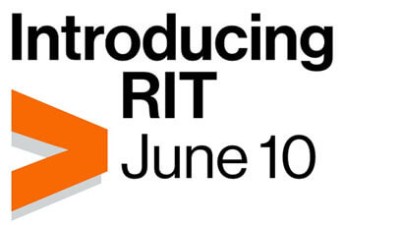Physics Colloquium: Printable Inorganic Electronics – The Interplay of Interface & Structure

Physics Colloquium
Printable Inorganic Electronics – The Interplay of Interface & Structure
Dr. Ahmad Kirmani
Assistant Professor
School of Chemistry and Materials Science, RIT
Abstract:
Solution-processed metal oxides (MOs) promise low-cost, flexible electronics manufacturable at high volumes. However, poor control over film crystallization and defects during solution fabrication limits performance in printed electronics. In this talk, I will emphasize the critical roles thin film interfaces and microstructure play in defining charge transport in MO thin film transistors (TFTs). Controlled crystallization of ultra-thin (<10 nm) sol-gel MO films via blade coating enables realization of high mobility indium oxide (In2O3) TFTs through solution confinement effects and sequential homoepitaxial growth. Structural characterization reveals crystallization below 4 nm is constrained, producing smooth films with strong texture. Subsequent homoepitaxial multilayers generate highly aligned, vertical grains spanning the film thickness. The high-quality crystalline structure enables percolation transport with electron mobility approaching 60 cm2/Vs. I will present design rules to overcoming interfacial and microstructures challenges by using film thickness as a key parameter and achieving band-like charge transport in MO electronics. Controlling morphology, texture, and passivation unlocks performance rivaling epitaxial films and accelerates the path to low-cost, flexible metal oxide electronics. I will close with a brief overview on using these ultrathin layered structures in extreme environments including radiation sensing and space.
Speaker Bio:
Ahmad Kirmani is a tenure-track Assistant Professor at the School of Chemistry and Materials Science (SCMS), College of Science, at RIT. He leads the Interface and Structure in Printable Inorganic Electronics (INSPIRON) research laboratory, with a focus on printable electronics for terrestrial and space applications. Prior to joining RIT, Kirmani was a postdoctoral researcher at the National Renewable Energy Laboratory (NREL) where he led a DOD-funded project on solution-processed perovskite solar cells for space applications. He earned his Ph.D. in materials science from KAUST in 2017, studying surface structure-property correlations in colloidal quantum dot photovoltaics. He has also conducted research at the National Institute of Standards and Technology (NIST) on scalable coating of metal-oxide inks and colloidal quantum dot self-assembly using synchrotron X-ray scattering. Dr. Kirmani has authored over 50 journal articles including prestigious journals such as the Nature family and Science. Website: www.ahmadrkirmani.com, Twitter: @AhmadRKirmani
Intended Audience:
Anyone with interest in the topic. All are Welcome.
To request an interpreter, please visit myaccess.rit.edu
Event Snapshot
When and Where
Who
Open to the Public
Interpreter Requested?
No








